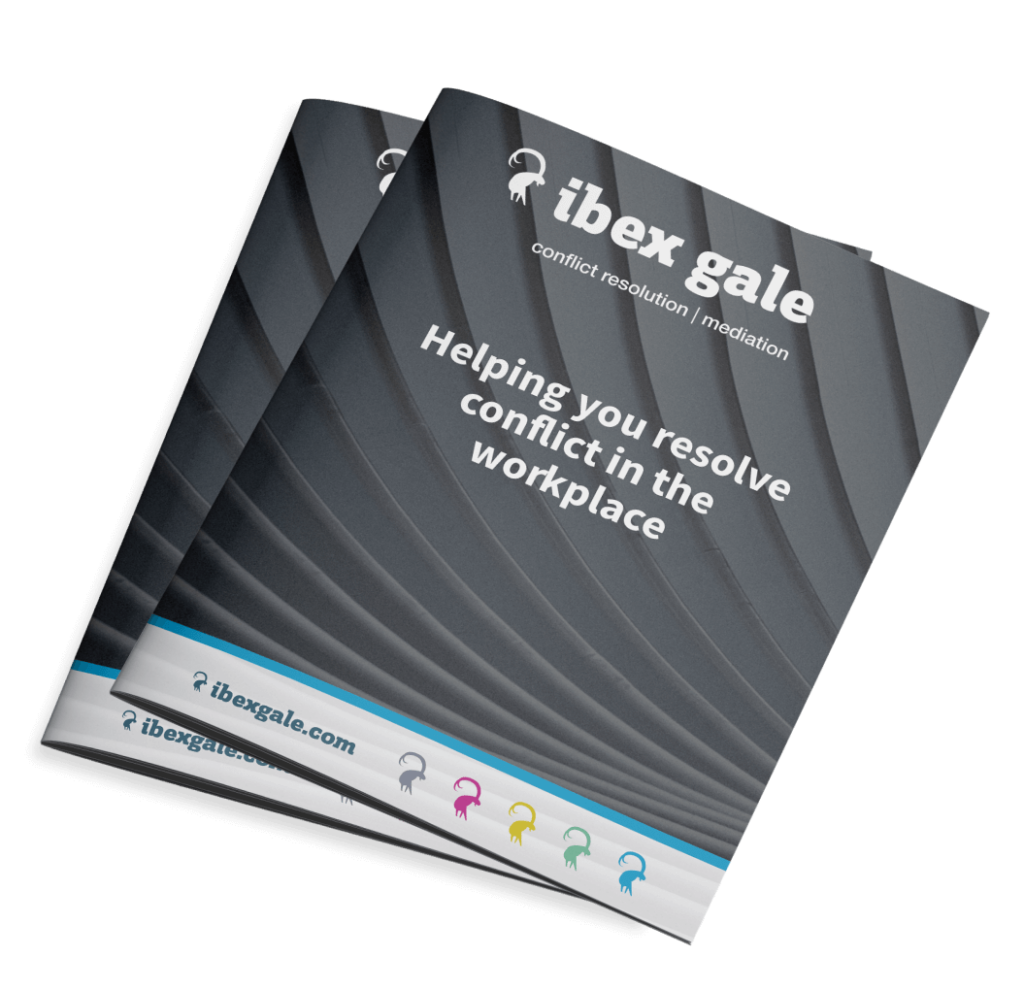We help organisations resolve complex disputes and differences between individuals and teams.

Certified to the British Standard for the provision of investigative services, BS 102000.


Founder & Director


Our team of accredited mediators are expert facilitators and coaches who can unlock conflict using a range of techniques and interventions.
We use methods such as the Fearless Organisational Scan and distinct mediation processes that result in positive forward steps for individuals, teams and companies.
Our independence as facilitators allows the freedom for people to voice their challenges, feelings and perspectives in a confidential and safe environment.
Using mediation and conflict resolution techniques to help people in a disagreement to move forward.
Royal Shakespeare Company
We are always happy to have a confidential discussion, so please get in touch.


The company's service areas are workplace investigations, organisational culture, conflict resolution & mediation, governance & assurance and change projects. We are proud to work with clients ranging from investment banks to the NHS.





“David undertook the investigation in a most professional and thorough...
Conflict Resolution and Mediation involves a variety of approaches that allow those experiencing relationship ruptures to explore solutions and take collective responsibility for resolving issues and concerns that may be manifesting themselves in the workplace.
At ibex gale, our process involves an up-front ‘Discovery’ phase where we complete an enquiry led process to understand the underlying issues. We then work with the individuals and/or teams experiencing conflict to assist in navigating a course, together, that stands the best possible chance of success. We support people to use the mediative approach to take their historic negative experiences and build on those to transform their ability to work together more productively and collaboratively.
Examples of approaches that ibex gale use are:
• Individual feedback and coaching sessions to raise individuals’ awareness and take responsibility for their part in sustaining the conflict – this ownership and self-reflection is vital for creating commitment to whatever follows.
• Traditional mediation to support fractured relationship repair between two or more individuals.
• Team sessions that follow a variety of formats, often including key leaders in part or all of the sessions, ranging from those run as practical workshops to clarify, map and agree roles, responsibilities and behaviours through to far more complex relational psychology-based team coaching sessions.
• Separate relational mediative sessions, held with a compassionate and supportive yet very unambiguous clarity, which allow us to challenge the unproductive and disruptive factions that can sometimes exist within teams and often go unchallenged.
• Individual intensive developmental leadership coaching.
• Team learning sessions on relevant themes such as Psychological Safety, Non-Violent Communication, Systemic Thinking, Trust and Understanding the Dynamic Impact of Power in Teams.
Resolution or Mediation should be considered when an organisation or individual parties identify a breakdown in communication or relationship(s). This may when a complaint or grievance has been made, or when there is a developing sense that relationships are not working, and a complaint or grievance may result if the situation is not resolved.
Often there might be signals such as failures in communication, cooperation and understanding differing perspectives or personal styles, which affect the day-to-day functionality in the workplace. Acting quickly is crucial to allow people to explore solutions to avoid issues escalating into complaints, and to safeguard productive working relationships that enhance the well-being and engagement of everyone concerned.
On occasion, there may be deep running conflicts that extend over may years, sometimes decades, that have simply been left to go unaddressed, but recent experiences have resulted in these becoming more of an issue for a wider team, group of stakeholders or the organisation. The idea of trying to tackle these issues can feel overwhelming and insurmountable, but our approach allows for even the most deep seated and extensive timescales to be supported.
We have an incredibly knowledgeable team, with vast experience managing conflict from low level communication issues through to more complex and disruptive relationship issues.
We work closely with the sponsors of this often difficult, uncomfortable work, also involving key stakeholders, to co-create interventions in a highly collaborative, non-judgemental and emergent way. These issues are often complex and have developed over many years, so are systemic in nature and have been neglected, rationalised and not dealt with because of the difficulty in confronting them. Because of this complexity, it is crucial to allow the pathway to emerge rather than following a formulaic approach, so we work together on sustainable solutions that are developed with the organisation, rather than imposed from outside
Please visit our Contact Us page and a member of our team will be in touch.
You can complete the form here and we will be in touch, or alternatively contact one of our team directly.
For updates and news, please follow our company LinkedIn page below;
© Ibex Gale | Registered in England and Wales No. 08814594